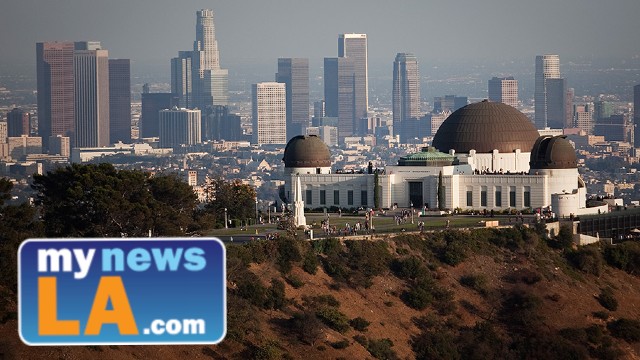The Los Angeles City Council Wednesday approved a proposed warehouse and distribution center for development in Harbor Gateway despite concerns from residents who argue the project will impact their health and worsen the already congested area.
In a unanimous vote, the council denied an appeal filed by concerned residents and advanced the project sought by Prologis, a company specializing in supply-chain and logistics real estate. The one-story, 53-foot tall, 340,298-square-foot warehouse would be built on a combined 15-acre lot at 15116-15216 S. Vermont Ave. and 747-861 W. Redondo Beach Blvd.
The project includes a 25,000-square-foot mezzanine and up to 40,000 square feet of office space, 194 parking spaces, 36 dock-high truck loading positions and more parking spaces for up to 71 truck trailers.
“For over eight years, our team has engaged with the community and local leaders to help shape a project that will benefit the Harbor Gateway community,” Lauren Achtemeier, VP, Investment Officer, Prologis, said in a statement. “We’re proud to move forward with a project that will create jobs and generate economic opportunity for the Harbor Gateway community for years to come.”
It was approved by the nine-member city Planning Commission earlier this year with concessions. The company agreed to reduce the project’s size and decrease the number of parking spaces, among other minor design changes. The company also agreed to increase the height of a sound and screen wall from 14 feet to 18 feet, and allow murals as a way to beautify the facility.
However, last week, the City Council’s Planning and Land Use Committee reduced the sound and screen wall to 14 feet, and decided that no murals would be permitted.
The council committee unanimously approved the project and denied the residents’ appeal opposing it on health and congestion grounds, but agreed that Prologis would enter into the city’s mitigation monitoring program. The company offered to make a one-time payment of $1.2 million into a community benefits fund for the immediate vicinity of the project — a measure spearheaded by Councilman Tim McOsker, whose district includes Harbor Gateway.
Additionally, Prologis agreed to provide electric vehicle charging stations, use solar power and reduce the number of truck trips to the facility between 10 p.m. and 5 a.m., as well as limiting the use of its 36 loading docks by 25% — prohibiting use for loading and unloading — for that same time frame.
Rosalie Preston, a resident who lives south of Redondo Beach Boulevard, urged the council to oppose the project. She had filed the appeal alongside a group of neighbors.
“Are you prepared to approve a project that would significantly increase air pollution with up to 768 diesel truck trips per day?” Preston asked, citing information from the Planning Department.
“Meanwhile, the approval does not include all feasible mitigations for the air quality impacts of this project, such as requiring all transport trucks using this facility to have engines that at least meet 2017 car standards of operation,” Preston said during Wednesday’s council meeting.
Officials with Councilman McOsker’s office noted that diesel truck traffic and the environmental impact are “always a concern in our district.”
The councilman’s office maintained they worked with community stakeholders and residents on 149th Street to ensure the project includes enforceable environmental safeguards and community benefits.
The council office noted that the project was previously proposed based on an insufficient environmental document, which has been improved. McOsker later called for additional mitigation on nighttime use of loading bays.
Officials for McOsker’s office emphasized the redevelopment cleans up a long-contaminated brownfield site, as well as create union jobs for workers who live in or near Harbor Gateway. They also touted the $1.2 million community benefit fund.
“This fund was shaped by community feedback, and it is important to the council member to ensure that residents have a voice in how these resources are allocated. Furthermore, the project was supported by local unions that recognized the value of bringing more jobs into our community,” according to a statement from McOsker’s office.
Preston in a phone interview with City News Service said she was disappointed with the councilman. She also hoped that some members of the City Council would have opposed the project.
She noted that the South Coast Air Quality Management District has regulations regarding warehouses because of the proliferation of these facilities, particularly next to existing residential areas.
“They’re very clear that there needs to be adequate buffers if these projects are going to be approved,” Preston said.
“This one doesn’t have that. AQMD has a policy on truck traffic routes, which they are not support to go past sensitive uses like residential and this one — the two major streets that trucks would be using, both Redondo Beach Boulevard and Vermont Avenue — are lined with apartments and homes, an elementary school and a recreation center.”
Preston criticized the community benefits fund as well, describing it as “insultingly low” because it could be used to support mitigation measures such as creating or installing air filtration systems in nearby homes.
“…That amount of money is totally inadequate,” Preston said.

